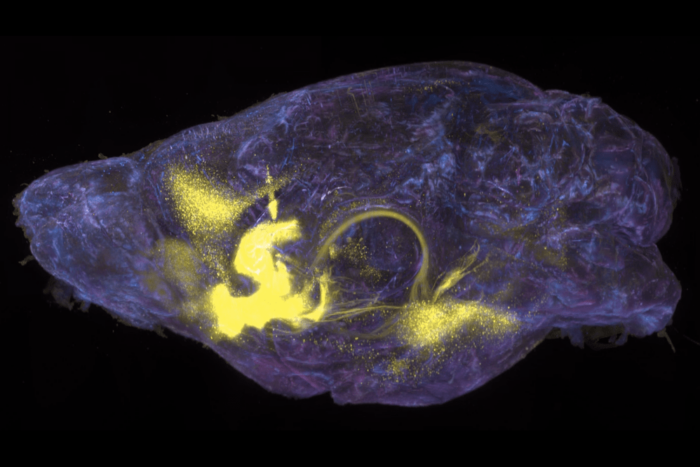Charles Gilbert to receive Scolnick Prize for visual perception work
Rockefeller’s Charles Gilbert, who studies visual perception, has won the 2015 Edward M. Scolnick Prize in Neuroscience, an award given by the McGovern Institute for Brain Research at MIT to recognize outstanding advances in the field. The prize, announced yesterday, will be formally presented on March 20 in Cambridge, Massachusetts.
Gilbert, who is the Arthur and Janet Ross Professor and head of the Laboratory of Neurobiology, is being recognized for his work on the primary visual cortex, a credit card-sized region of cells at the back of the brain where the cortical processing of visual information begins.
Awarded annually for work in any field of neuroscience, the prize is endowed through a gift from Merck Research Laboratories and includes a $100,000 award. Its namesake, Dr. Edward M. Scolnick, was a longtime president of Merck Research Laboratories who is now at the Broad Institute.
Before joining the Rockefeller faculty in 1983, Gilbert began a longstanding collaboration with Torsten Wiesel, who would become a Nobel Laureate and Rockefeller’s President. Together, they described the lateral neuronal connections within the visual cortex, which are central to our understanding of how this part of the brain functions. Gilbert’s work revealed that the cortex contains an extensive network of lateral connections that allow neurons to respond not just to the stimuli in their primary receptive fields, but also to contextual information from other parts of the image. This is central to the ability to perceive large-scale features within the clutter of natural visual scenes.
Gilbert went on to discover that the growth of these horizontal connections and intricate changes in their connectivity play an important role in the brain’s plasticity, by allowing it to compensate for an inactive patch on the retina. Similar circuits and mechanisms are thought to exist throughout the brain, and to underlie its ability to recover after damage or disease.
The plasticity of these horizontal connections is also important for perceptual learning, a form of brain plasticity that persists throughout life. Gilbert has identified changes in the functional properties of cortical neurons that correlate with perceptual learning, and showed that these changes are seen only during the performance of the specific learned task, leading to a new view of cortical neurons’ function.
Gilbert received his M.D. and Ph.D. from Harvard Medical School in 1977, where he held an academic appointment until he joined Rockefeller as assistant professor and head of laboratory. He became associate professor in 1985 and professor in 1991 and in 2004 was named Arthur and Janet Ross Professor.
A member of the National Academy of Sciences and the American Academy of Arts and Sciences, he has received numerous awards, including the W. Alden Spencer Award from the Columbia University College of Physicians and Surgeons.
The Scolnick Prize was first awarded in 2004. Rockefeller’s Bruce McEwen was the winner in 2011 for his contributions to understanding how hormones affect the brain.


